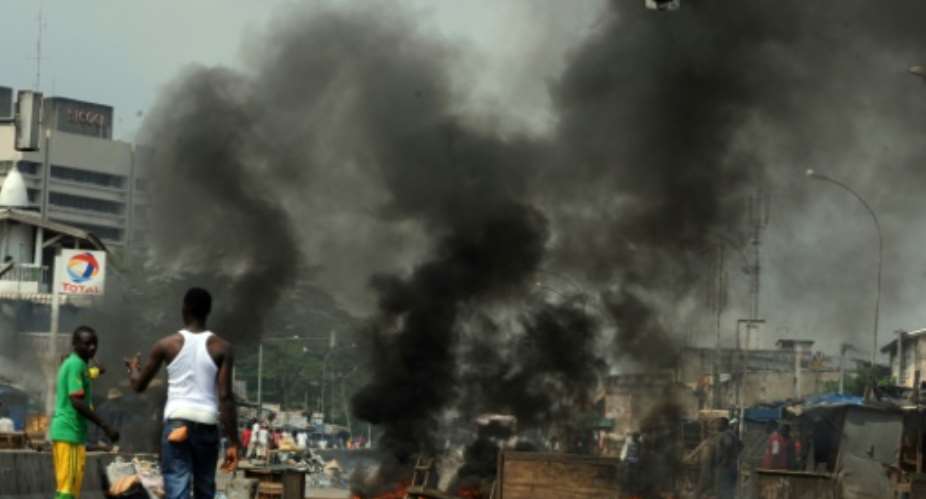Abidjan (AFP) - Ivory Coast must deliver "long overdue" justice to the victims of deadly clashes that swept the world's top cocoa grower after disputed elections in 2010, Human Rights Watch said Tuesday.
Some 3,000 people were killed in five months of unrest after the election in late 2010, when then president Laurent Gbagbo refused to quit following his defeat to challenger Alassane Ouattara.
Gbagbo is currently on trial at the International Criminal Court in The Hague for crimes against humanity over the violence and Ouattara is now president.
Gbagbo and his former militia chief Charles Ble Goude, who is also on trial, deny four charges of crimes against humanity over the violence.
"Victims of the post-election crisis have suffered in silence for five long years," said Param-Preet Singh, HRW's senior international justice counsel, adding that both sides were to blame for the violence.
"Trials of key perpetrators from both sides would send a clear message that those responsible for grave human rights abuses cannot escape the reach of justice," Singh said.
"The risks associated with delivering flawed justice are very real," HRW said, and called on Ouattara to "strengthen the country's justice system so it can deliver long overdue justice" through "independent, impartial, and fair" trials.
Although both camps were responsible for the post-election violence, no pro-Ouattara officials have been targeted by Ivorian justice or the ICC, which has sparked opposition accusations of bias.
"The ICC's work remains critical, to ensure victims of both sides of the conflict see justice and to enhance the court's legitimacy in Ivory Coast," HRW said.
"Credible trials in Ivorian courts, alongside the ICC's investigations, would show the government's willingness to work with the ICC to end impunity."





 'Kill whoever will rig Ejisu by-election' – Independent Candidate supporters inv...
'Kill whoever will rig Ejisu by-election' – Independent Candidate supporters inv...
 Ashanti Region: ‘Apologize to me for claiming I owe electricity bills else... – ...
Ashanti Region: ‘Apologize to me for claiming I owe electricity bills else... – ...
 Ghana is a mess; citizens will stand for their party even if they’re dying — Kof...
Ghana is a mess; citizens will stand for their party even if they’re dying — Kof...
 Internet shutdown an abuse of human rights — CSOs to gov't
Internet shutdown an abuse of human rights — CSOs to gov't
 Free SHS policy: Eating Tom Brown in the morning, afternoon, evening will be a t...
Free SHS policy: Eating Tom Brown in the morning, afternoon, evening will be a t...
 Dumsor: A British energy expert 'lied' Ghanaians, causing us to abandon energy p...
Dumsor: A British energy expert 'lied' Ghanaians, causing us to abandon energy p...
 What a speech! — Imani Africa boss reacts to Prof. Opoku Agyemang’s presentation
What a speech! — Imani Africa boss reacts to Prof. Opoku Agyemang’s presentation
 Dumsor: Tell us the truth — Atik Mohammed to ECG
Dumsor: Tell us the truth — Atik Mohammed to ECG
 Dumsor: Don't rush to demand timetable; the problem may be temporary — Atik Moha...
Dumsor: Don't rush to demand timetable; the problem may be temporary — Atik Moha...
 Space X Starlink’s satellite broadband approved in Ghana — NCA
Space X Starlink’s satellite broadband approved in Ghana — NCA
